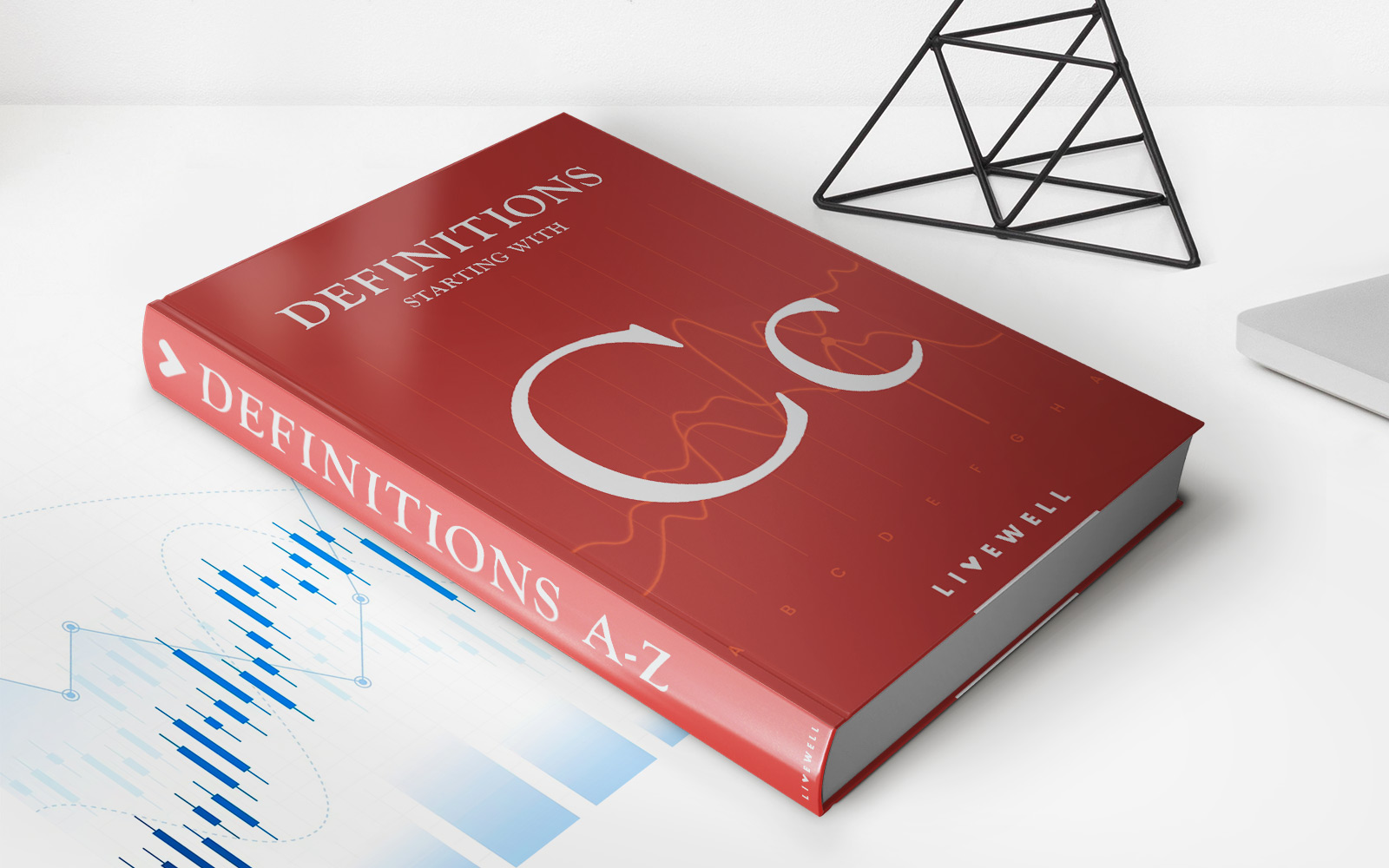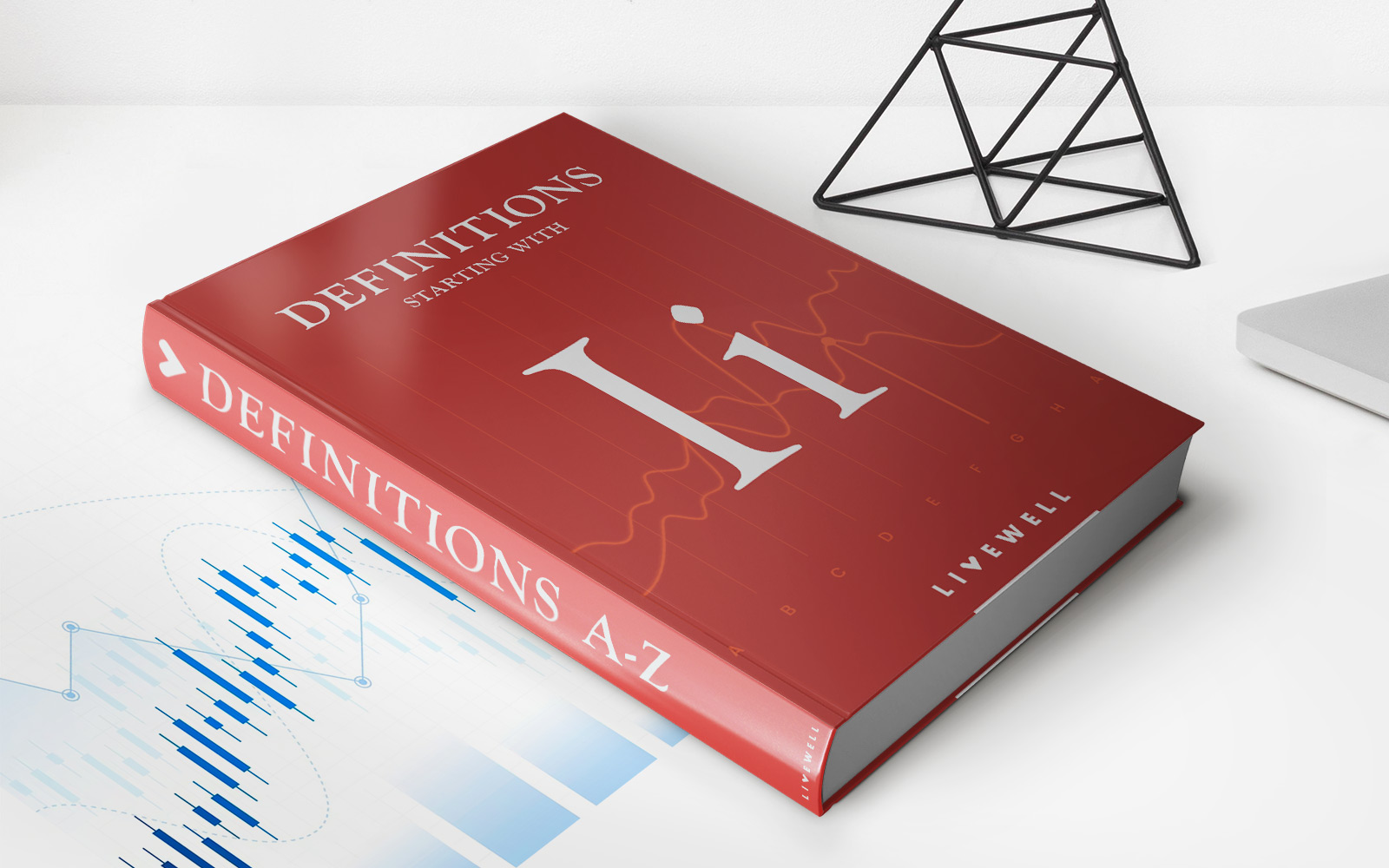

Finance
What Is A CIA In Accounting
Published: October 9, 2023
Discover the role of a Certified Internal Auditor (CIA) in accounting and how it contributes to the financial success of businesses. Gain insights into finance and stay updated with the latest industry practices.
(Many of the links in this article redirect to a specific reviewed product. Your purchase of these products through affiliate links helps to generate commission for LiveWell, at no extra cost. Learn more)
Table of Contents
Introduction
Welcome to the world of accounting, where numbers come alive and financial decisions shape the fate of businesses. In the realm of accounting, there are several designations and certifications that professionals can pursue to enhance their credibility and expertise in the field. One such certification is the Certified Internal Auditor, commonly known as CIA.
The CIA designation is awarded to individuals who have demonstrated exceptional skills and knowledge in the field of internal auditing. While the CIA certification can be pursued by professionals in various industries, it holds particular significance in the realm of finance and accounting. With an increasing focus on transparency, risk management, and corporate governance, the role of internal auditors has become integral in ensuring the integrity and accuracy of financial reporting.
In this article, we will delve deeper into the concept of CIA in accounting, exploring its definition, importance, role, certification requirements, and job prospects. Whether you are considering a career in accounting or looking to enhance your skills and knowledge as a finance professional, understanding the significance of CIA in accounting will aid you in making informed decisions and advancing your career.
Definition of CIA in Accounting
The Certified Internal Auditor (CIA) is a professional designation awarded by The Institute of Internal Auditors (IIA). It is a globally recognized certification that validates a professional’s knowledge, skills, and abilities in the field of internal auditing. The CIA certification signifies that an individual possesses the necessary expertise to perform internal audit functions effectively and efficiently.
Internal auditing is a crucial function within organizations. It involves evaluating and assessing an organization’s internal control system, risk management practices, and governance processes. The primary objective of internal auditing is to provide independent and objective assurance to management and stakeholders regarding the organization’s operations, financial reporting, and compliance with laws and regulations.
A CIA accountant undergoes rigorous training and examination to demonstrate proficiency in areas such as financial accounting, risk management, internal control evaluation, and fraud detection. They possess a deep understanding of the accounting principles and standards, as well as the legal and regulatory frameworks governing financial reporting in their respective jurisdictions.
Furthermore, internal auditors are responsible for identifying potential risks and vulnerabilities within an organization’s operations and processes. They conduct thorough examinations and assessments to evaluate the effectiveness of internal control measures and recommend improvements to enhance efficiency and mitigate risks.
The CIA designation sets internal auditors apart from their peers, highlighting their specialized knowledge and dedication to maintaining the highest professional standards. It signifies a commitment to ongoing professional development, ethical conduct, and continuous improvement in the field of internal auditing.
Overall, CIA accountants play a critical role in ensuring financial integrity, risk management, and regulatory compliance within organizations. Their expertise and insights not only contribute to the success of the organization but also provide stakeholders with confidence and assurance in the accuracy and reliability of financial information.
Importance of CIA in Accounting
The Certified Internal Auditor (CIA) certification holds immense importance in the field of accounting for several reasons. Here are some key reasons why the CIA designation is highly valued:
- Enhanced Professional Credibility: The CIA certification enhances the credibility of accounting professionals by validating their knowledge, skills, and expertise in internal auditing. It serves as a testament to their commitment to upholding the highest professional standards and ethics.
- Specialized Expertise: CIA accountants possess specialized expertise in internal auditing, including risk management, internal controls, and compliance. This knowledge allows them to provide valuable insights and recommendations to improve an organization’s operations and financial reporting.
- Increased Employability: The demand for internal auditors with CIA certification is on the rise. CIA accountants are highly sought after by both public and private sector organizations, as they bring a unique skill set that ensures effective risk management and internal control practices.
- Compliance with Regulations: In an increasingly regulated business environment, organizations must comply with a multitude of laws, regulations, and industry standards. CIA accountants play a crucial role in helping organizations navigate these complex regulations and ensure compliance with relevant requirements.
- Risk Mitigation: Internal auditors with CIA certification possess the knowledge and skills to identify potential risks and vulnerabilities in an organization’s operations. By conducting risk assessments and implementing effective internal controls, they help mitigate risks and safeguard the organization’s assets.
- Improved Financial Reporting: CIA accountants contribute to the accuracy and reliability of financial reporting by assessing the integrity of an organization’s financial systems and processes. They provide assurance that financial statements are prepared in accordance with applicable accounting standards and regulatory requirements.
- Ethical Conduct: The CIA certification places a strong emphasis on ethical conduct. CIA accountants adhere to a strict code of ethics, ensuring integrity, objectivity, confidentiality, and professional competence in their work. This commitment to ethical behavior enhances the trust and confidence stakeholders place in the organization.
Overall, the CIA certification is a mark of excellence in the field of internal auditing. It establishes the credibility of accounting professionals and demonstrates their expertise in areas critical to effective risk management, regulatory compliance, and financial reporting. By holding this certification, CIA accountants are well-equipped to contribute to the success of organizations and make informed financial decisions.
Role of CIA in Financial Decision Making
The Certified Internal Auditor (CIA) plays a vital role in financial decision making within organizations. Their specialized knowledge and skills in internal auditing contribute to effective risk management, regulatory compliance, and informed financial decision making. Here are some key ways CIA professionals contribute to financial decision making:
- Evaluating Internal Controls: CIA professionals assess an organization’s internal control system to ensure it is robust and effective. By identifying weaknesses or gaps in internal control processes, they provide valuable insights to management, enabling them to make informed decisions to mitigate risks.
- Fraud Detection and Prevention: CIA professionals are skilled in detecting and preventing fraud. Through their expertise, they help identify potential fraudulent activities, implement internal controls to prevent fraud, and provide recommendations to strengthen fraud detection mechanisms. Their insights contribute to the reliability and accuracy of financial information used in financial decision making.
- Risk Management: CIA professionals have a deep understanding of risk management practices. They assist in identifying potential risks and developing risk mitigation strategies. By evaluating and monitoring risks, they help organizations make sound financial decisions that align with their risk appetite.
- Assessing Compliance: Compliance with laws, regulations, and industry standards is essential for organizations. CIA professionals ensure that financial decisions are made in accordance with applicable regulations, reducing the risk of legal and regulatory non-compliance. Their involvement helps maintain the organization’s reputation and minimizes potential financial and legal consequences.
- Internal Audit Consulting: CIA professionals provide consulting services to management during financial decision-making processes. They offer expert advice on finance-related matters, including investment decisions, budgeting, and financial planning. Their deep understanding of internal control systems and financial processes assists in making informed decisions that align with the organization’s objectives and financial goals.
- Operational Efficiency: CIA professionals help identify areas where operational efficiencies can be improved. By conducting internal audits and process evaluations, they provide recommendations to streamline financial processes, reduce costs, and optimize resource allocation. Their contributions enhance the efficiency of financial decision-making processes.
- Assurance and Governance: The role of CIA professionals extends to providing assurance to stakeholders regarding the organization’s financial integrity and governance practices. By conducting independent assessments, they instill confidence in the accuracy and reliability of financial information, facilitating informed financial decision making by stakeholders.
In summary, CIA professionals bring a unique set of skills and expertise to financial decision making. Their contributions in evaluating internal controls, detecting and preventing fraud, managing risks, ensuring compliance, providing consulting services, improving operational efficiency, and enhancing assurance and governance practices all aid in making informed financial decisions that align with the organization’s objectives and foster long-term success.
CIA Certification and Requirements
The Certified Internal Auditor (CIA) certification is offered by The Institute of Internal Auditors (IIA), a global professional organization dedicated to promoting the internal audit profession. To obtain the CIA certification, individuals must meet certain requirements and successfully complete a series of examinations. Here are the key steps and requirements for obtaining the CIA certification:
- Educational Requirements: Candidates must possess a bachelor’s degree or its equivalent from an accredited institution. Although a specific major is not required, a background in accounting, finance, or a related field is preferred.
- Experience Requirements: Candidates must have at least two years of professional experience in internal auditing or a related field. A master’s degree or an additional year of professional experience can also qualify for the required experience.
- IIA Membership: Candidates must become members of The IIA to be eligible for the CIA certification. Membership provides access to resources, networking opportunities, and continuous professional development programs to support the candidate’s career growth.
- CIA Exam: The CIA certification requires candidates to pass a three-part exam. The exam assesses candidates’ knowledge in areas such as internal auditing foundations, internal audit practice, and business knowledge for internal auditing. Each part of the exam consists of multiple-choice questions, and candidates have the flexibility to take the exams in any order and timeframe.
- Continuing Professional Education (CPE): CIA-certified professionals are required to maintain their competence through continuous professional education. The IIA mandates that certified individuals earn and report a specified number of CPE hours annually to stay up-to-date with emerging trends, regulations, and best practices in the field of internal auditing.
- Ethics Requirement: Upholding ethical conduct is essential for CIA-certified professionals. Candidates must pass an ethics exam encompassing The IIA’s Code of Ethics, which outlines the principles and standards that govern the behavior and integrity of internal auditors.
Once all requirements have been met, candidates are awarded the CIA certification, which demonstrates their expertise in internal auditing and commitment to professional standards.
It is important to note that certification requirements and processes may vary depending on the jurisdiction or country in which an individual seeks certification. Candidates should consult with The IIA or their country-specific auditing organization for detailed information regarding specific certification requirements and processes.
Benefits of CIA Certification
The Certified Internal Auditor (CIA) certification offers numerous benefits for accounting professionals seeking to advance their careers in the field of internal auditing. Here are some key advantages of obtaining the CIA certification:
- Enhanced Career Opportunities: The CIA certification opens up a wide range of career opportunities in internal auditing. CIA-certified professionals are highly valued and sought after by organizations in both the public and private sectors. The credential demonstrates a high level of expertise and competence in the field, making individuals stand out among their peers.
- Increased Earning Potential: Studies have shown that individuals with professional certifications, such as the CIA, tend to earn higher salaries compared to their non-certified counterparts. The additional knowledge and skills gained through the certification process can lead to better job prospects and increased earning potential.
- Global Recognition: The CIA certification is internationally recognized, allowing professionals to expand their career prospects globally. It demonstrates a commitment to professional growth, ethical conduct, and adherence to global standards in internal auditing.
- Specialized Knowledge and Skills: The CIA certification equips professionals with a deep understanding of internal auditing principles, practices, and methodologies. This specialized knowledge enables them to provide valuable insights and recommendations to organizations, contributing to effective risk management, compliance, and governance processes.
- Professional Networking Opportunities: The membership in The Institute of Internal Auditors (IIA), which is a requirement for CIA certification, provides access to a vast network of professionals in the field of internal auditing. This network allows for valuable connections, knowledge exchange, and career development opportunities.
- Continuous Professional Development: The CIA certification requires certified professionals to engage in continuous professional education. This commitment to ongoing learning ensures that CIA-certified individuals stay updated with the latest trends, regulations, and best practices in internal auditing, further enhancing their expertise and professional competence.
- Recognition of Ethical Conduct: Holding the CIA certification signifies adherence to a strict code of ethics in the field of internal auditing. This recognition of ethical conduct enhances professional credibility and instills confidence in stakeholders, affirming the commitment to upholding the highest standards of integrity and trust.
Overall, obtaining the CIA certification offers numerous benefits, including expanded career opportunities, increased earning potential, global recognition, specialized knowledge and skills, networking opportunities, continuous professional development, and recognition of ethical conduct. These advantages not only contribute to professional growth but also enhance the value and impact CIA-certified professionals bring to organizations.
Job Prospects for CIA Accountants
The job prospects for Certified Internal Auditor (CIA) accountants are exceedingly promising. With the increasing emphasis on risk management, internal controls, and corporate governance, the demand for skilled internal auditors is on the rise. Here are some key job prospects for CIA accountants:
- Internal Auditor: The most obvious career path for CIA accountants is to work as internal auditors within organizations. They play a critical role in evaluating and assessing the effectiveness of internal control systems, identifying potential risks, and providing recommendations to mitigate those risks. CIA accountants are essential in ensuring financial integrity and regulatory compliance within organizations.
- Risk Manager: With their expertise in risk assessment and management, CIA accountants are well-suited for roles as risk managers. They provide valuable insights in identifying and evaluating risks, developing risk mitigation strategies, and implementing measures to minimize potential risks. Their knowledge and skills contribute to effective risk management practices within organizations.
- Compliance Officer: Due to their deep understanding of regulations and compliance requirements, CIA accountants are well-positioned to take on roles as compliance officers. They ensure that organizations operate within legal and regulatory frameworks, monitor compliance with laws and regulations, and implement internal controls to mitigate compliance risks.
- Audit Manager: With their strong background in internal auditing, CIA accountants can progress to managerial positions, such as audit managers. They oversee and manage internal audit teams, plan and execute audit projects, and provide guidance and support to enhance the effectiveness and efficiency of internal auditing functions within organizations.
- Consultant: CIA accountants may choose to work as consultants, providing their specialized knowledge and expertise to organizations on a contractual basis. They offer valuable insights and recommendations on internal control systems, risk management practices, and financial processes to help organizations improve their operations and achieve their objectives.
- Corporate Governance Specialist: As organizations place greater emphasis on corporate governance, there is a growing demand for professionals who can ensure compliance with governance standards. CIA accountants possess the knowledge and skills to assist organizations in developing and implementing effective corporate governance practices, thereby fostering accountability and transparency.
- Academia and Training: CIA accountants can pursue careers in academia, teaching internal auditing and related courses to aspiring professionals. They can also contribute to the training and development of individuals seeking CIA certification, sharing their expertise and facilitating the growth of future internal auditors.
Overall, the job prospects for CIA accountants are diverse and abundant. They have opportunities to work in various industries, including finance, manufacturing, healthcare, government, and consulting. With their specialized knowledge in internal auditing, risk management, compliance, and financial processes, CIA accountants are well-equipped to take on challenging roles that contribute to the success and sustainability of organizations.
Conclusion
The Certified Internal Auditor (CIA) certification holds significant value in the field of accounting, particularly in the realm of internal auditing. CIA accountants possess specialized knowledge and skills in internal auditing, risk management, compliance, and financial processes. Through their expertise, they contribute to effective financial decision making, ensuring the integrity of financial reporting, mitigating risks, and maintaining regulatory compliance.
Obtaining the CIA certification offers numerous advantages for accounting professionals. It enhances career opportunities, increases earning potential, and provides global recognition. CIA accountants can pursue various career paths, including internal auditing, risk management, compliance, and corporate governance. Their expertise is highly sought after by organizations in both the public and private sectors.
Beyond the career benefits, the CIA certification signifies a commitment to ethical conduct and professional integrity. It demonstrates a dedication to upholding the highest standards of competence, ethics, and continuous learning in the field of internal auditing.
In conclusion, the CIA certification is a valuable credential for accounting professionals who wish to excel in the field of internal auditing. It positions individuals for growth and success, opening doors to exciting career opportunities and providing the expertise needed to make informed financial decisions that drive organizational success. Whether you are currently in the accounting profession or considering a career in accounting, obtaining the CIA certification can be a significant step towards enhancing your professional credibility and advancing in the field of internal auditing.














